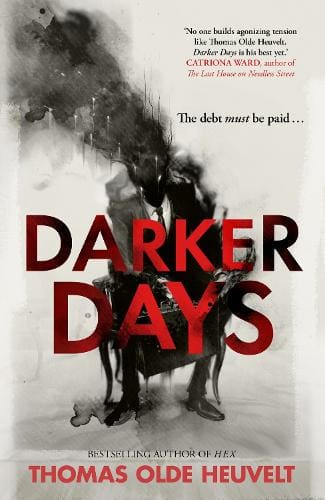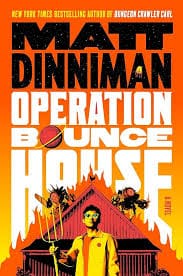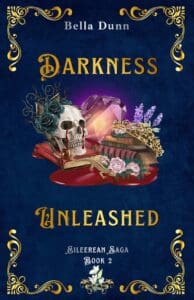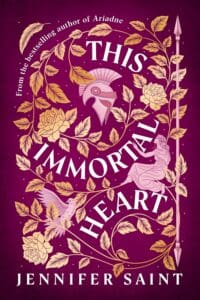
Synopsis:
In Lock Haven, a quiet little town in Washington State, there is a very special street.
Bird Street. The residents of Bird Street are all successful, wealthy, healthy and happy. And their children are all well-mannered and smart and high achievers.
At least they are for eleven months of the year.
In November, however, the ‘Darker Days’ begin. For November’s the month when things take a turn for the worse: accidents, bad luck, familial conflict and illness take hold. And it is in November that a stranger comes to Bird Street to collect the debt owed by the residents.
Because, you see, there is a price that must be paid for all the happiness and good fortune they enjoy for the other eleven months of year. And that price is one human life. Every November. Without fail.
And so it has been for over a hundred years. To ease their guilt, the residents of Bird Street seek out individuals – usually the elderly or the terminally ill – who wish to die with dignity and are content to be helped on their way.
But this year, things don’t go to plan. This year events take a terrifying turn . . .
Review:
A novel that takes seasonal depression to new extremes, and is not so much “darker,” at it is subsumed entirely by something black and bleak and void-like, Thomas Olde Heuvelt’s latest offering is grim, gritty and generally unpleasant. Packed with genuinely effective scares from early on, Heuvelt poses various important questions with “Darker Days,” tusseling with utilitarianism, the ethical ramifications of putting your own life above another, and the conditions in which death may become something to be welcomed rather than resisted. With gorgeous writing, compelling if not morally ambiguous characters, and, as I mentioned, some truly spine-chilling passages, fans of Heuvelt’s previous work will certainly not be disappointed- at this point I am ready to learn Dutch to get my fix a little earlier. “Darker Days,” is out from Harper Books in the US October 28th, and Bantam Books, who so kindly sent me a gorgeous proof copy, in the UK October 23rd.
We follow the residents of Bird Street, Lock Haven, Washington who do incredibly well for themselves. Their small community is made up of entrepreneurs and athletes and professors and legal professionals, even the kids are talented, little Django Lewis da Silva for example, at the age of 10 is a piano extraordinaire. But such prosperity and happiness, comes at a cost. November rolls around, and so begin the darker days, a time in which Bird Street is reminded of the lives they might be living had they not struck that deal, a time when prosperity falters and the illusion of quiet perfection splinters, a time of misfortune, ratcheted tensions and ill health that can only be brought to a close by bloodshed.
For Bird Street the price of happiness is one paid in human sacrifice, and it is paid each year without exception, but the definition of happiness itself is one that Heuvelt scrutinises. Can the Lewis Da Silvas and the other residents truly be happy knowing that such fortune is entirely engineered, contingent on something inhumane, tainted and bloodied, and subject to ritual dissolution each looming November? Is tarnished happiness true happiness?
I think that there are three big moral quandaries that the reader must confront early on. The first ethical dilemma we stumble across is a utilitarian one. Is it permissible to bring to a close the long and increasingly low-quality life of an individual to enhance the lives of many? As moral agents, can such a trade be made? The second, if no, and when it comes to ritual sacrifice, it generally is a no, would be are the residents of Bird Street merely stuck in a selfish collective consciousness, or each personally complicit? It’s a question posed by the character of Sue Snell in King’s “Carrie”… can responsibility be diluted across many, or does it remain intact for each accountable individual? How far does regret, or efforts to reconcile go?
The third is the most interesting. Does everything change if the victims are not victims at all, but rather ethically selected individuals who do in fact welcome the idea of death? It is the same debate currently being held in the UK Houses of Parliament, and I’m sure in various other climates. Is euthanasia, meaning of course, “good death,” moral? Defensible at least? I certainly think so. Does that change when a life is actively brought to a close? To complicate matters further the perspectives we read from, the Lewis Da Silva’s, are not overtly malicious, or your typical moustache twirling villains anyway. Does intention and manner matter? These constantly shifting debates of right and wrong, defensible and reprehensible, aren’t ones the reader has with themselves in a vacuum but nestled amongst a whole lot of horror, and they may crawl out of this book rather exhausted.
Gwendolyn Kiste’s “The Haunting of Velkwood,” meets Ira Levin meets the trolley problem in Thomas Olde Heuvelt’s deeply unsettling and intellectually rigorous “Darker Days.” A book that requires those reading to grapple constantly with their sense of morality, whilst intermittently scaring the hell out of them, Heuvelt’s latest for those reasons is a challenge to read. It is simultaneously, in regard to its writing, its atmosphere and oxymoronically that challenge it presents, a true delight.









Leave a Reply